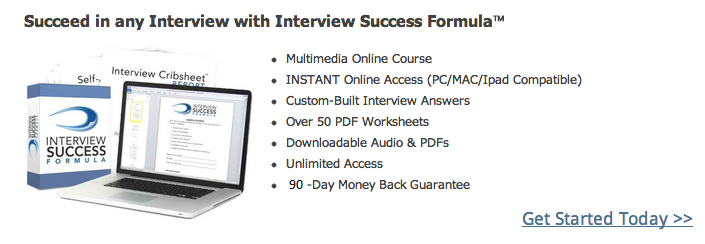 If you want to land a job in the defense industry, expect your job interview to be as unique as the field itself. Most hiring decisions really come down to how well a job candidate can fit into an organization's work culture. This is easier than it sounds.
If you want to land a job in the defense industry, expect your job interview to be as unique as the field itself. Most hiring decisions really come down to how well a job candidate can fit into an organization's work culture. This is easier than it sounds.
On the most basic level, corporate culture today is fairly homogenized due to the widespread application of human resource management and quality management systems that delineate mission statements and core value declarations. But the defense industry has a corporate culture that’s unique among its peers.
Learning something about this industry's culture prior to an interview should be the first step of your interview preparation.
To understand the defense industry's culture, let me first describe the industry because how it is portrayed in the movies and popular media tends to distort the reality of working in this industry. The defense industry has both internal and external components. Federal government employees are the internal component; employees of public/private corporations who contract with the government are the external component.
Remember, these corporations are often large, multinational companies who have competencies in a variety of fields that include, IT, communications, engineering, and construction, among others. So, their corporate culture is usually the standard work culture one would expect of a Fortune 500 company. The federal government, on the other hand, has a culture that has been developed by the prevalence of military veterans in its workforce. (To date, military veterans make up 40% of the federal work force.)
So, in the defense industry, you have an intersection of two different work cultures. The only way for these different work cultures to work together and achieve mutual objectives is to bend and adapt to each other. In other words, the federal government with its military-weighted culture adopts characteristics of mainstream corporate culture and, conversely, public/private corporations adopt some of the characteristics of military culture. If you have never been in the military or do not have any close friends or relatives in the military, you may misinterpret the cultural signals transmitted verbally and nonverbally by the interviewers during your interview. So, let me address this topic before discussing interview questions.
It is easy to misinterpret the body language of the interviewers in the defense industry. In particular, the straight-faced, non-smiling, mechanical, and unhappy demeanors. To some people this type of body language is a red flag for an unhappy work environment, which may or may be true. Rather than interpreting your interviewers' body language as "something is wrong here," you should disconnect yourself from your emotions. It’s best to consider your impression as their natural projection of military culture as well as their notion of fairness, objectivity, and non-discrimination.
I realize the latter reason sounds peculiar and is an arguable point. But, everyone in the military goes through the same basic training and is given objective standards of performance in order to advance. The straight-faced, mechanical demeanors are an example of how military culture attempts to be objective and stick with the facts. No matter what the truth is, as an interviewee, what you need to do is not make conclusions based upon your gut level response. Stay focused on the facts and given substantive, rational and detailed answers.
Now let me go through the interview process itself, which has many similarities to interviews in other industries. This industry relies on their internal resume databases as well as personal referrals to source candidates. Your resume will be graded with a score between 1 and 100; candidates with grades in the 90s are usually called in for an interview. You will be contacted by phone and sometimes go through several interviews with a team of interviewers.
Once you pass through this, you will be invited to the office for an in-person interview, which could last from 45 minutes to 3 hours. You will be asked standard, technical (job specific), and behavioral questions. What you may not realize is that prior to being called in for an interview, you have been examined "under a microscope.” So, the standard and technical questions will be fairly easy. What will be different is a more extensive background investigation, which in some cases could include a polygraph and a psychological test. But, the meat of the interview questions will be behavioral in the STAR system, which is a behavioral interview technique. STAR stands for "Situation or Task," "Action Taken," and "Results obtained." It would be worth your time to learn about the STAR approach. Go to any Web search engine and use "STAR + behavioral interview" as your keywords to learn more.
The behavioral interview questions are very common. So, you should be able to find the primary ones from the interviewing resources on this website. The key is to structure your answers correctly. But, here are a few questions to start:
- Tell me a time you met a tight deadline. How did you respond?
- Tell me a time when you worked with a difficult person.
- Tell me a time when you were in a leadership role and you had to make a decision that would affect cybersecurity.
- Tell me a time when you had to convince senior management to make a change.
- If I were the head of the C.I.A., and you were responsible for collecting information for an ongoing crisis, how would you brief me?
Perhaps the most challenging part of the interview process in the defense industry is the waiting game. It takes much longer to get an interview and, after the interview, to get a job offer. Four months is more common than you think for the whole process. But, I recall a customer of mine who waited 17 months for an interview. Generally, the wait will be longer for federal government jobs than for public/private corporations. But, it will take much more time than most any other employer. So, be patient.


